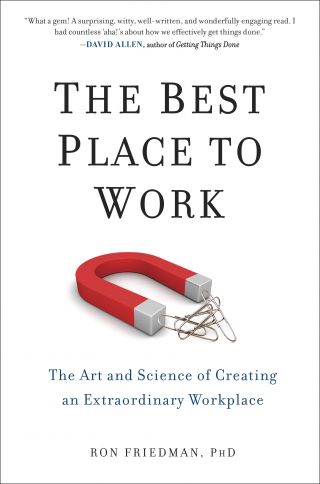Career
How to Stop Working All The Time
3 tips for training yourself to disconnect after hours
Posted April 8, 2015
In 2007, the same day Steve Jobs introduced the first iPhone, executive coach Marshall Goldsmith published a book called What Got You Here Won’t Get You There.
In it, Goldsmith makes the case that many of the behaviors that initially propel high-achievers up the corporate ladder are paradoxically the same ones preventing them from reaching the very top. Habits like winning too much (the need to win every workplace disagreement, even when it doesn’t matter), adding too much value (adding your two cents to every discussion), and goal obsession (becoming so wrapped up in achieving short-term goals that you forget the larger mission).
Early in your career, these behaviors demonstrate that you are driven. But the moment you step into a position of leadership, they become counterproductive.
Since Goldsmith’s book first appeared in print, another double-edged workplace habit has cropped up—one that would have been difficult to spot when he first conceived of his book.
Failing to disconnect.
Like many of the practices Goldsmith identifies in his book, it is surprisingly hard to recognize the damage working excessive hours inflicts both on leaders and their teams.
In part, it’s because when you’re first starting out, working evenings and weekends gets you noticed. It is what differentiates you from less motivated colleagues, yielding early recognition and promotions. In this way, hard work becomes ingrained as part of your identify.
While working long hours is often beneficial to early career advancement, as you rise to a position of leadership, maintaining this practice can damage your career prospects.
For one thing, it’s because of shifting job responsibilities.
Early in your career, the primary measure of your performance is how well you manage yourself. But the higher up you go, the more likely you are to have a job that involves managing others. No longer are technical abilities quite as important. Now, success hinges on interpersonal skill.
What happens to our interpersonal skills when we work ourselves to exhaustion? Studies indicate that when we’re low on energy, we tend to misread those around us, typically in a more negative fashion. Happy faces appear more neutral. Neutral face start to look like frowns. What’s more, when we’re fatigued we find it harder to resist lashing out at perceived slights. Not only to do we incorrectly perceive the world around us more negativity, we’re also more likely to act upon that information.
Weaker communication isn’t the only danger of failing to disconnect. So is impaired judgment.
The more senior you are in an organization, the more frequently you’re called upon to make complex decisions. And when it comes to navigating uncertainty and negotiating risk, the research is clear: Decision quality plummets when we’re tired. The more choices you face, the more critical it is for you to restock your energy. Overwork and the sleep deprivation it fosters prevent you from seeing problems clearly and identifying creative solutions.
But perhaps the biggest hazard of failing disconnect once you arrive in a senior position is that your actions make it harder for your team to stay engaged. Why? Because suddenly, your workplace habits are no longer a personal matter. As a leader, your behaviors communicate expectations.
A 2010 study looked at what happens when employees are unable to psychologically detach from work during off-hours. Hundreds of employees at a variety of organizations were surveyed twice—once at the beginning of the study and then again a year later.
The findings were unambiguous. Not only were employees lacking work-free time off less invested in their job a year later, they were more likely to report emotional exhaustion and physical symptoms, like headaches and stomach tenseness.
To be sure, working long hours isn’t always a path to disengagement. As anyone who has experienced sitting in an empty office on a Saturday morning can attest, freely choosing to work on the weekend is a completely different psychological experience than being expected to do so.
Which underscores yet another reason disconnecting from work is vital to leaders’ performance: when laboring non-stop becomes standard operating procedure, it’s difficult for employees to feel like working hard is their choice.
What can we all do to make disconnecting easier? Here, a recommendation Goldsmith noted in his book nearly a decade ago continues to have value: think small.
Find one thing you can change about your behavior and start there. Most attempts at behavior change—from trying to eat healthy to adopting a grueling new exercise regimen—fail for the same reason: they’re too ambitious.
Rather than attempting to modify all of your work habits, find one modest change that you feel comfortable implementing. For example, try leaving your smartphone in another room when you get home in the evening, so that you’re not tempted to check your work email every time your smartphone appears in your peripheral vision.
Or, spend a few minutes learning how to program the emails you send in the evening to arrive first thing in the morning, so that you’re not sucked into a back and forth with colleagues at all hours.
Just as useful: Stop “trying to disconnect” and find an enjoyable activity to fill your time outside the office. Ideally, identify something active you’d like to master: take up biking, join a sports league, sign up for baking lessons. Not only can activities like these refresh your thinking and offer you the perspective that comes with distance, they also enable you to reframe your time away from the office in terms of gain instead of loss.
Rather than chiding yourselves not to work after hours, you are better off proactively engaging in activities you can look forward to doing.
It’s what behavior change experts know: Breaking a bad habit takes more than trying to stop. It requires finding something more appealing you can do instead.

Ron Friedman, Ph.D. is a social psychologist specializing in human motivation, and the author of The Best Place to Work: The Art and Science of Creating an Extraordinary Workplace.
Connect with Ron Friedman, Ph.D. on Twitter @ronfriedman.
To receive an email the next time he posts, click here.




